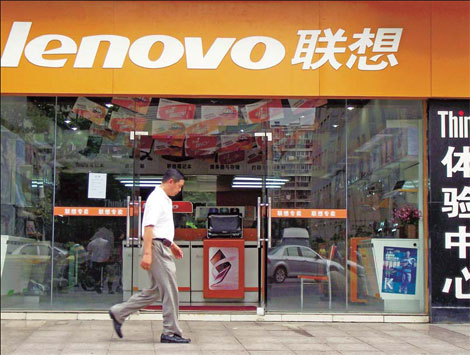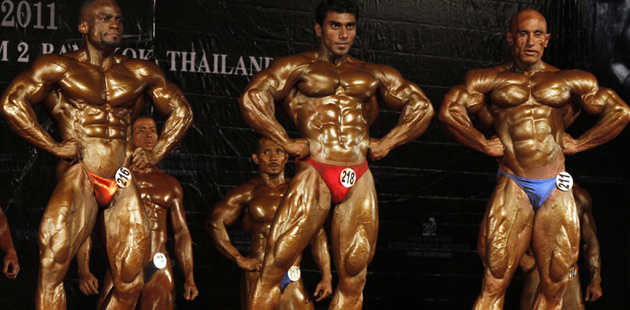Lenovo takes over No 2 spot in global PC market share
Updated: 2011-10-14 11:14
By Tuo Yannan (China Daily)
|
|||||||||||
|
A Lenovo computer store in Nanjing, Jiangsu province. China, as Lenovo's home market, has overtaken the United States to become the largest PC market. [Photo/China Daily] |
36% boost lifts it above Dell, Acer, according to IDC research report
BEIJING - A Chinese PC maker has overtaken its international rivals to rise to the No 2 slot globally for the first time, the US-based research company IDC said in its latest report.
According to the report, the market share for Lenovo Group Ltd, the largest Chinese PC maker, surged 36 percent year-on-year and surpassed overseas rivals such as Dell Inc and Acer Inc to become the second-largest PC maker by market share in the third quarter, behind Hewlett-Packard (HP) Corp.
"It means developing economies have greater importance in the world's IT industry," said Wang Jiping, a senior analyst at IDC.
After reported quarterly sales revenue of $5.9 billion - the Chinese company's highest in 27 years - from April through June last month, Lenovo predicted it would hold the second slot globally by the end of this year. However, the prediction materialized sooner than expected.
In the second quarter, the company reported a pre-tax net profit of $123 million, nearly double that of the same period last year.
Although HP said it plans to spin off its PC business, it still held 18.1 percent of the global market in the third quarter, as much as its second quarter figure.
Lenovo held 13.7 percent market share in the third quarter, up from the second quarter's 12.2 percent, while Dell's market share decreased from 12.9 percent to 12 percent during that period.
"Ranking No 2 or No 3 doesn't matter too much to PC makers in the long term, but the result illustrates that the Chinese company's voice carries more weight now," Wang said.
Lenovo attributed the result to previous joint ventures and acquisitions of Japanese and German PC companies and its new market strategy.
In January, it announced a $175 million joint venture with Japan's NEC Corp. In July, Lenovo completed its acquisition of Medion AG, a German multimedia and consumer electronics maker.
"The two companies contribute about 1 percent global market share to Lenovo," said Lenovo CEO Yang Yuanqing. He said that the company will place greater emphasis on four aspects: the traditional PC market, tablet PCs, the smartphone and smart TV. Lenovo's competitor HP is exiting two of the four sectors.
Yang also mentioned on Thursday that Lenovo has become the fifth-largest PC vendor with a 6.8 percent market share in the United States for the first time. The company saw a pre-tax profit of $77 million in mature markets such as the US, Japan and Western Europe in the second quarter. It was facing $9 million in losses in the same period last year.
China, as Lenovo's home-field market, has overtaken the US to become the largest PC market.
Second-quarter PC shipments in China stood at about 18.5 million units, valued at $11.9 billion. In the US, about 17.7 million units were shipped, valued at $11.7 billion.
In China, Yang said, the company aims to increase its market share from about 33 percent to 35 percent.
"Although Lenovo's market share in global mature markets is still relatively small, it has a very strong advantage in the Chinese market," said Kitty Fok, vice-president of IDC Asia-Pacific.
"We forecast China will continue to experience rapid growth over the next quarter, especially in the mobile Internet sector," she said.
Related Stories
Lenovo in $300m JV with Compal, shares jump 2011-09-27 17:35
Lenovo aims to seize global market share 2011-09-09 07:48
Lenovo looks to the north 2011-09-05 09:48
Lenovo consolidates Argentine market share 2011-09-02 14:48
- Nike plans to 'just double it' in China
- Tougher supervision over cooking oil urged
- China's inflation eases to 6.1% in Sept
- Concern over currency bill
- Entrepreneurs lose confidence
- China can soften global shocks
- Anti-dumping probe begins on polyurethane imports
- Updated tariffs on luxury products discussed














